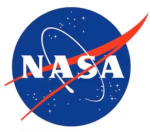Log In
Sign Up
Soft Matter Science Research in Microgravity Fall 2023 Internship
NASA GRC plans to bring in undergraduate and graduate students to support experimental research in its soft matter dynamics area which encompasses a wide area of interdisciplinary science with a special focus towards polymer, colloid, and granular media. In addition we are looking for students who have expertise in the area of Artificial Intelligence/Machine Learning (AI/ML), programming, automation, control. The areas of research will be dependent on the background of the student and may include the following: 1) the classical problem in fluid mechanics is called “Coffee-Stain Effect” where students will work on the fundamental science impact of using viscoelastic fluid as carrier medium for suspension particles; 2) Differential Dynamic Microscopy where students will work work on developing the analytical tool to enable DDM using standard microscope; 3) Micrometer-based optical stages where students work towards automation of micrometer-based optical stages that will allow us to control stage motion at micron level and 4) Rheological studies where students will work on space flight experiment hardware that flew in the 1990s to modernize the software system and upgrade the hardware as needed for testing of rheological fluids. Technical Skills: The student should be familiar with working in the lab environment, taking data/measurements and extrapolating results and working with most lab equipment. Student should have experience with data acquisition systems and software such as Matlab or Mathematica or Python. Student should have basic knowledge with MS Office products. The student should have good communication skills to convey and present on the work they have accomplished. The area of expertise is Physical sciences and biomedical technologies in space. This is a full time opportunity and requires the student to be onsite at NASA Glenn.
Academic Level
Undergraduate Freshman; Undergraduate Sophomore; Undergraduate Junior; Undergraduate Senior; Graduate Master’s; Graduate Doctoral
Preferred Major
Computer and Information Sciences – Computer Programming; Engineering – Chemical; Engineering – Chemistry; Engineering – Materials; Engineering – Materials Science; Engineering – Mechatronics / Robotics / Automation Engineering; Engineering – Physics; Engineering – Polymer/Plastics Engineering; Engineering – Science; Multi-disciplinary – Biological and Physical Sciences; Multi-disciplinary – Science / Technology and Society; Physical Science – Chemistry; Physical Science – Physics
Role Overview
-
Location: Glenn Research Center


